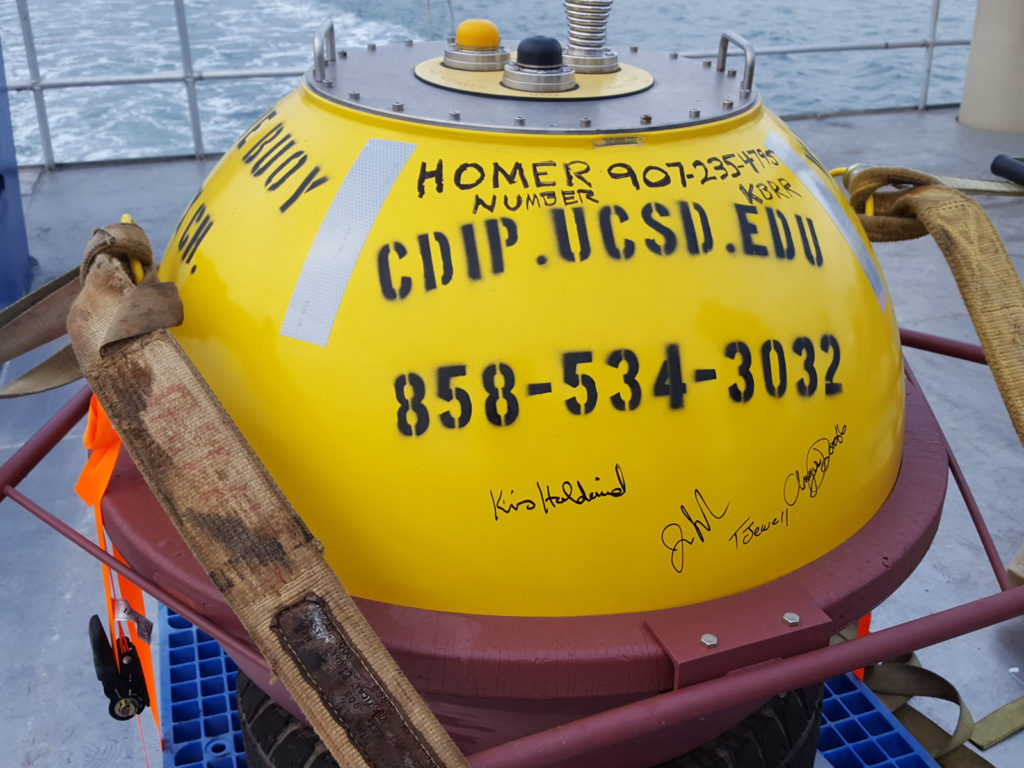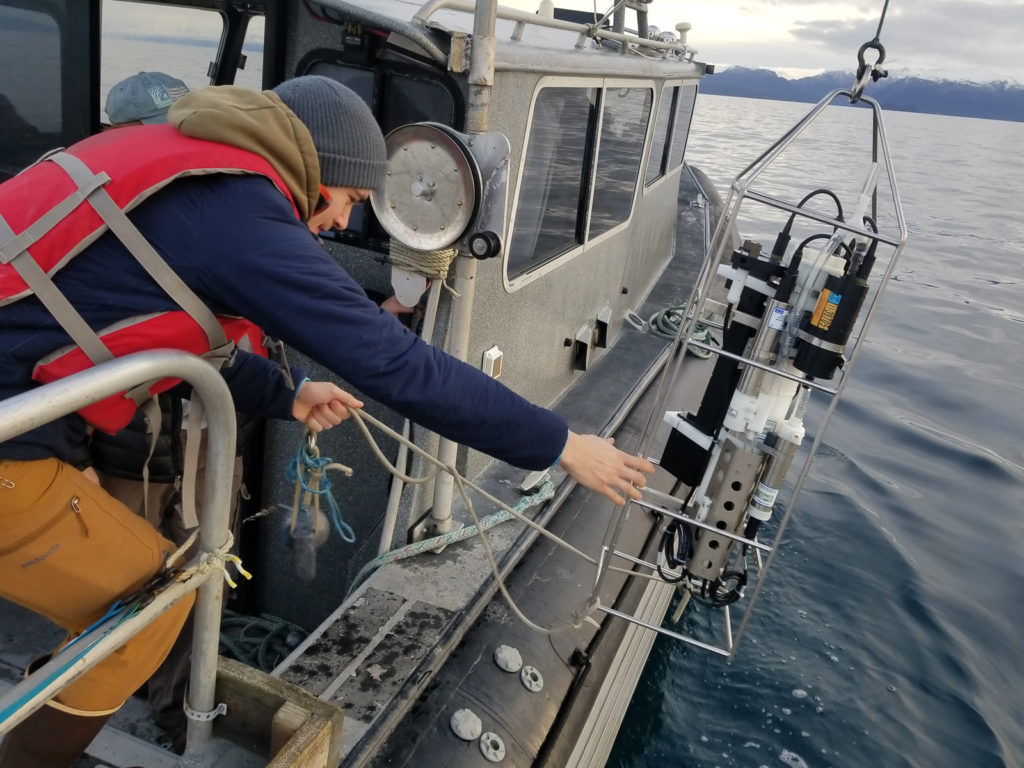In the ocean, there is one interconnected circulation system powered by wind, tides, the force of Earth’s rotation, the sun, and water density differences. Changes in ocean circulation have large impacts on global climate and marine ecosystems. Understanding the oceanographic conditions of Kachemak Bay is important because marine processes that affect biological production, including water temperature, stratification, regional modes of climate variability and nutrient fluxes, change at a variety spatiotemporal scales. With changing climate arises a myriad of issues from warming waters, increased freshwater input from melting glaciers, and ocean acidification, which can have lasting impacts on marine ecosystems. Increased knowledge of biological responses to environmental drivers and the mechanisms relating those changes will aid in management of clams, crabs, fisheries, and invasive species.
System-Wide Monitoring Program
In 1995 the National Estuarine Research Reserve System established the System-Wide Monitoring Program (SWMP) with the goals to identify and track short-term variability and long-term changes in the integrity of representative estuarine ecosystems and coastal watersheds, for the purpose of contributing to effective national, regional and site-specific coastal zone management. Beginning in 2001 at KBNERR, SWMP collects a variety of data including water quality, weather conditions, and salt-marsh mapping. All data undergo strict quality control before being made publicly available. These data are available at various locations online, including the National Estuarine Research Reserve System’s Real-Time Data Application.


